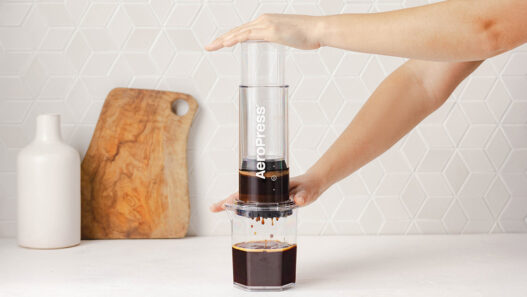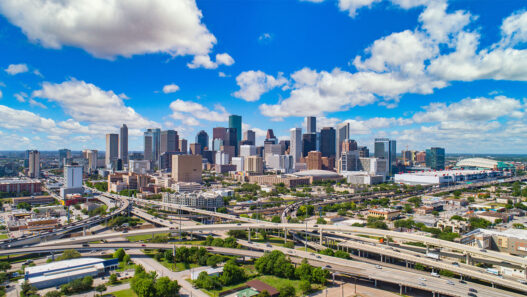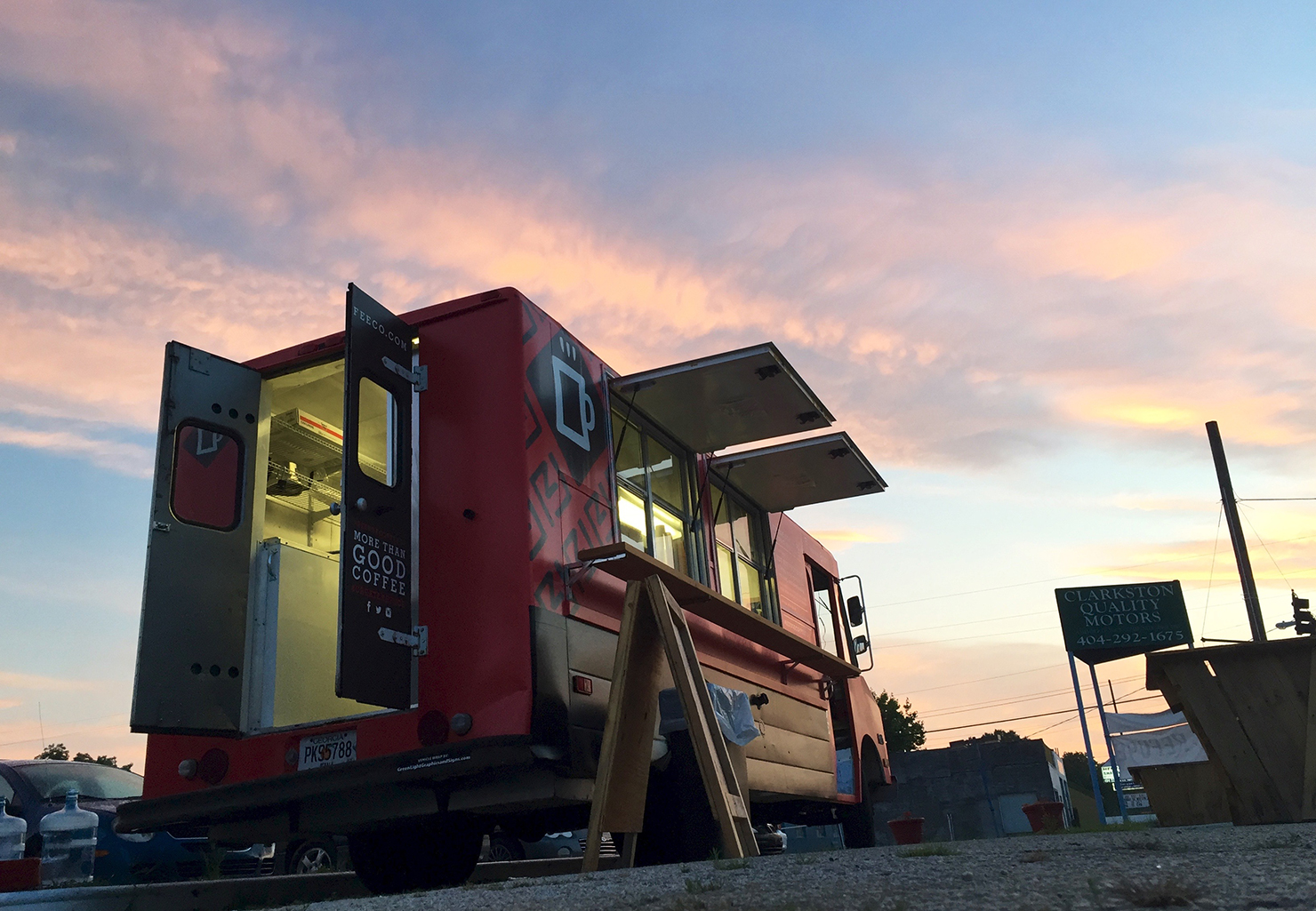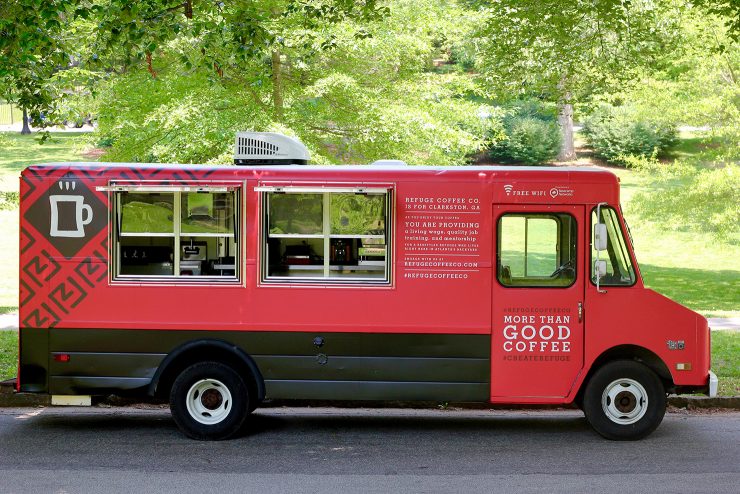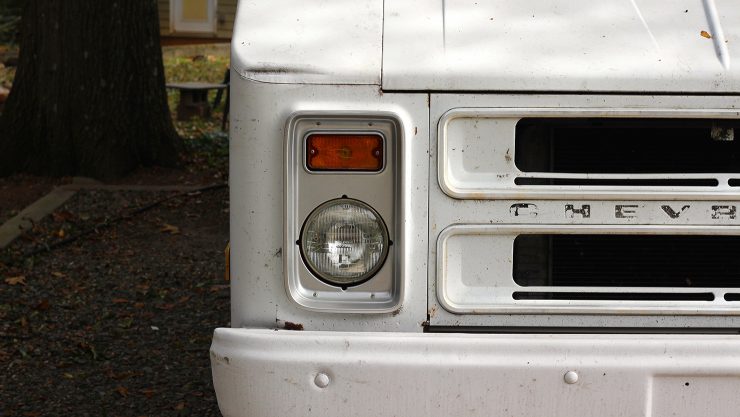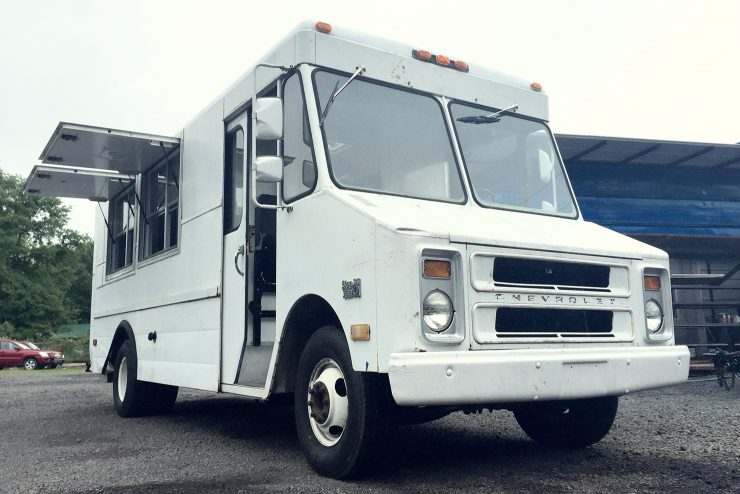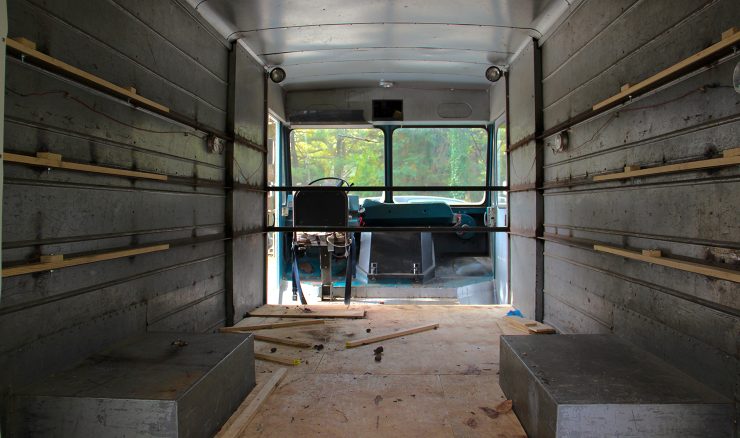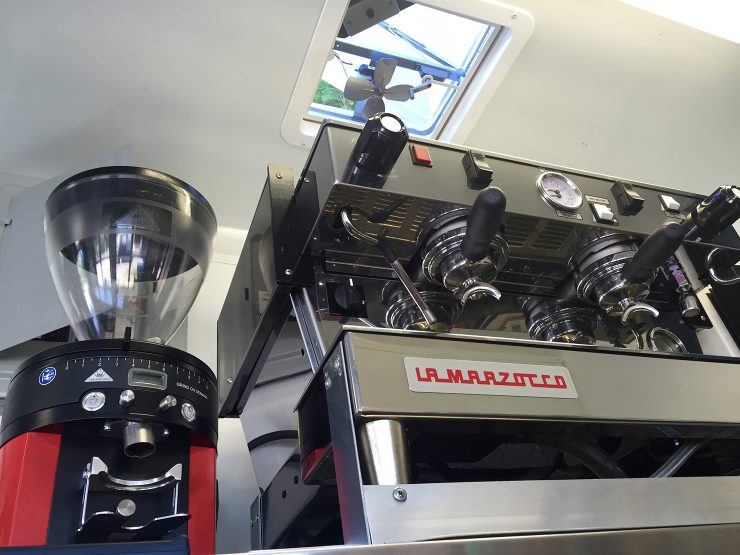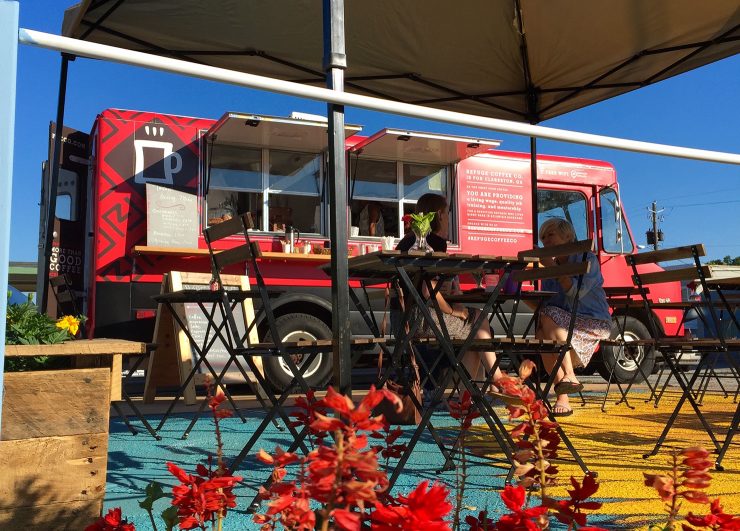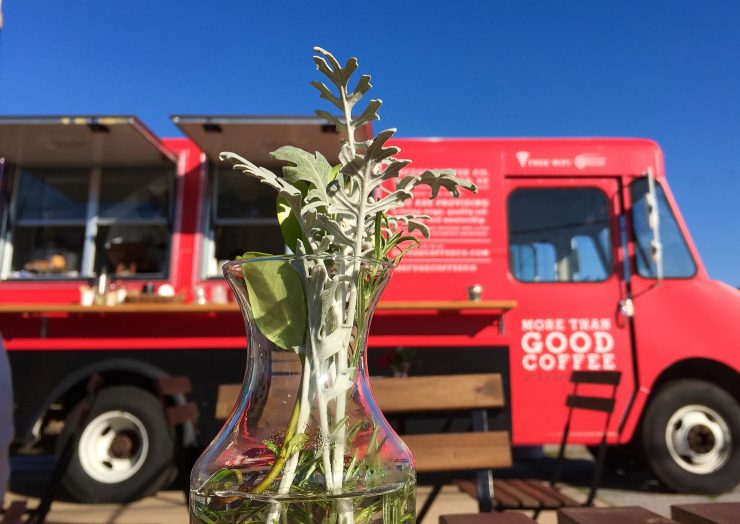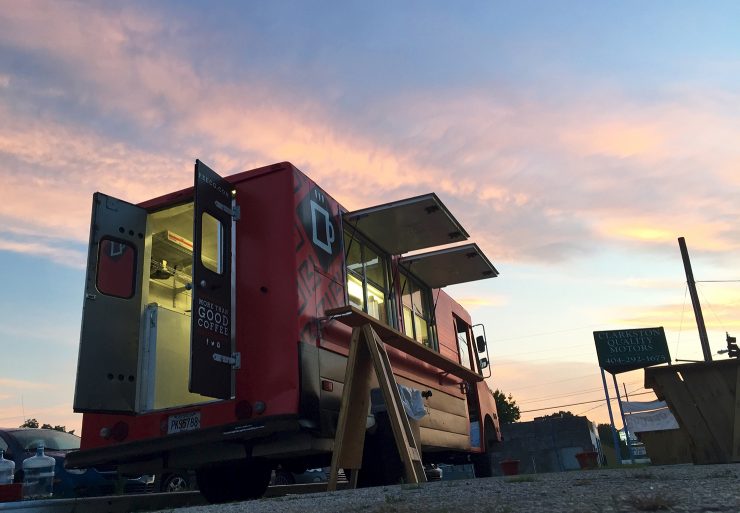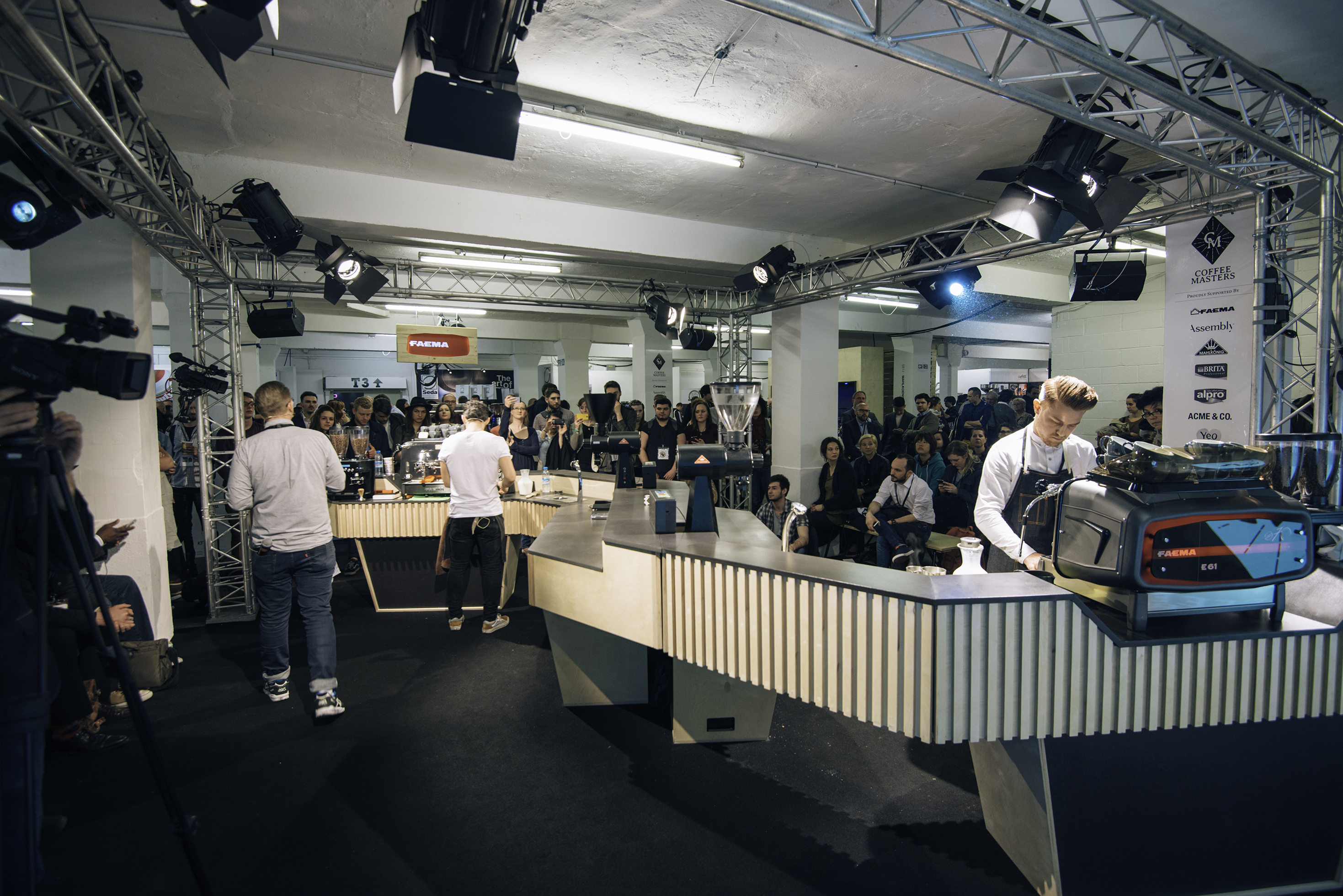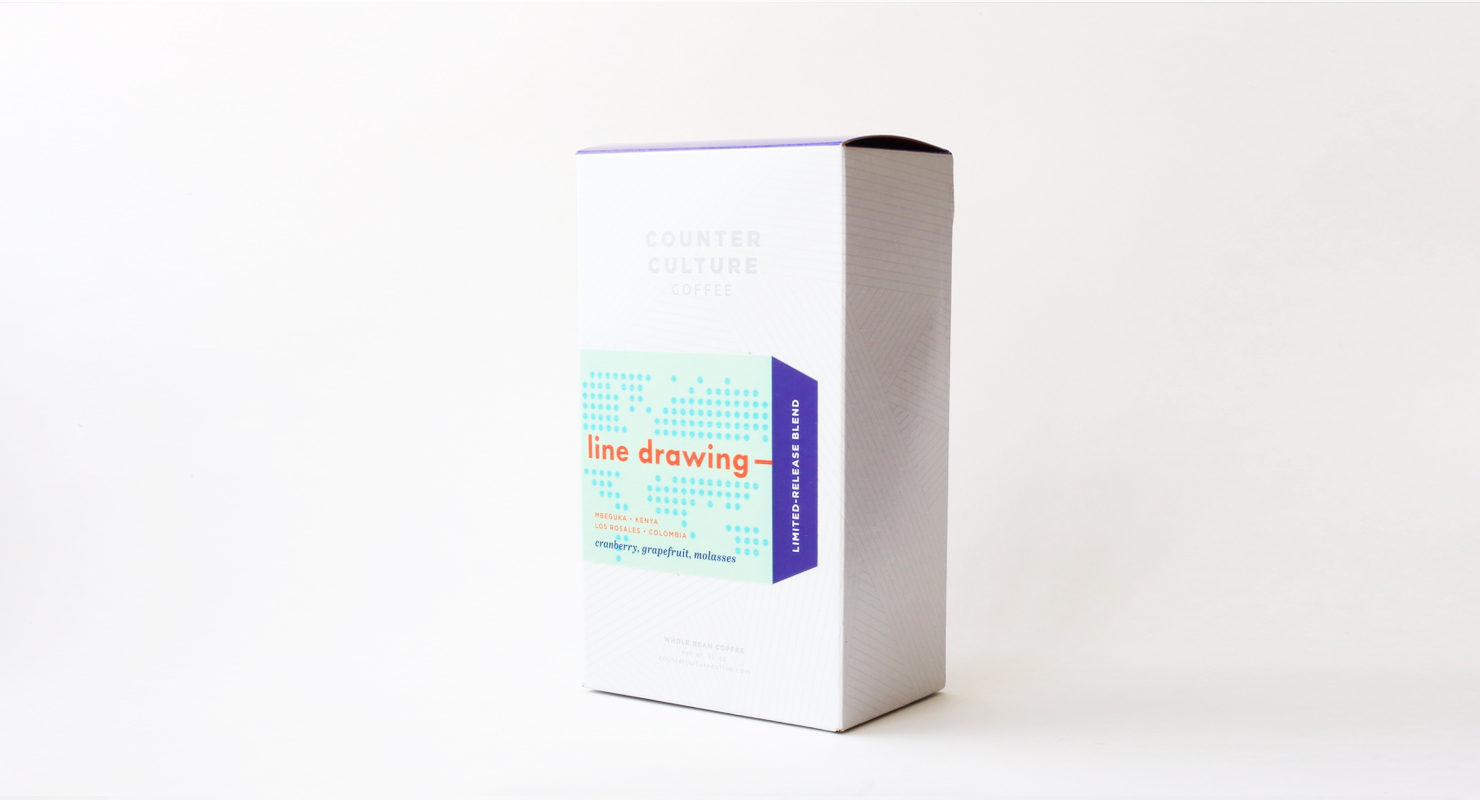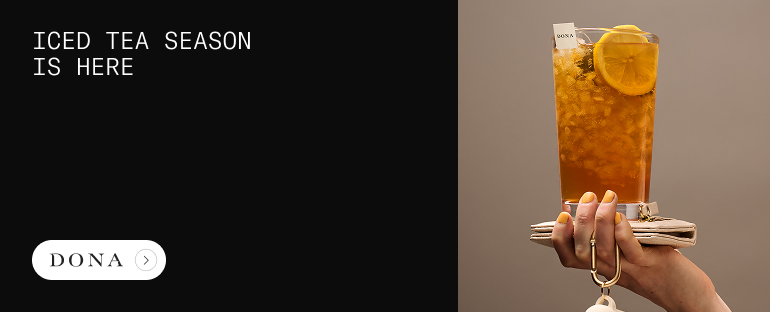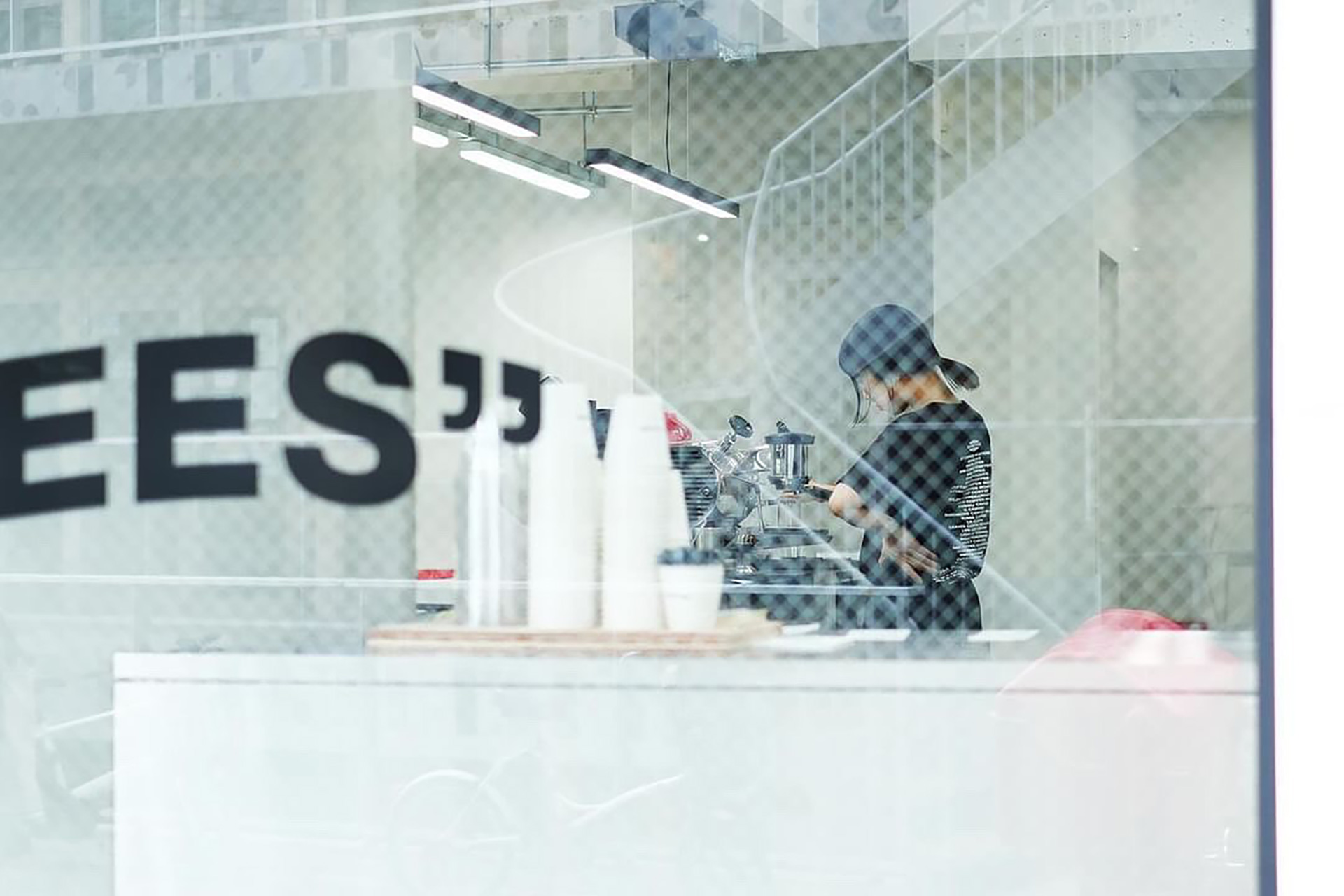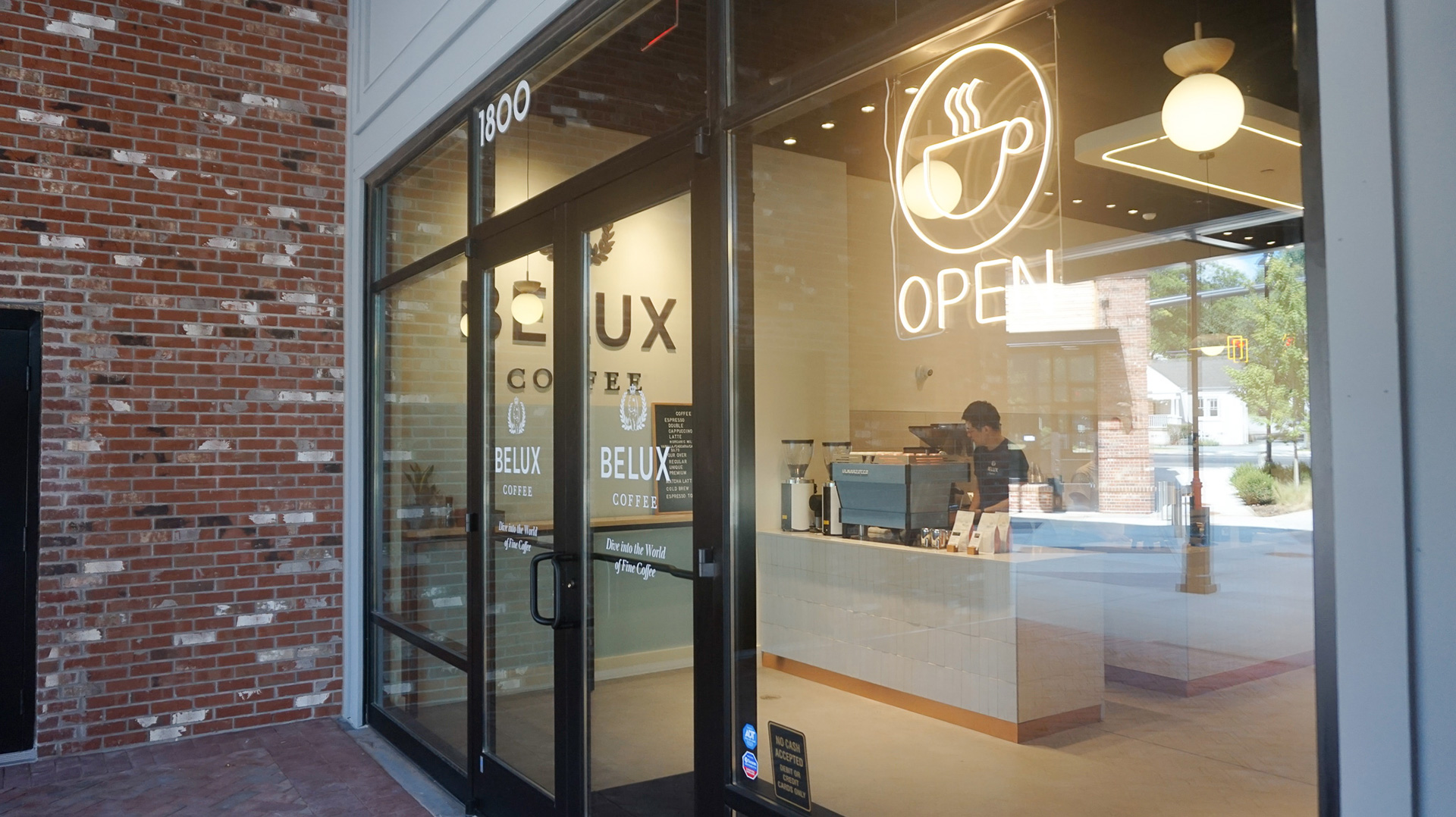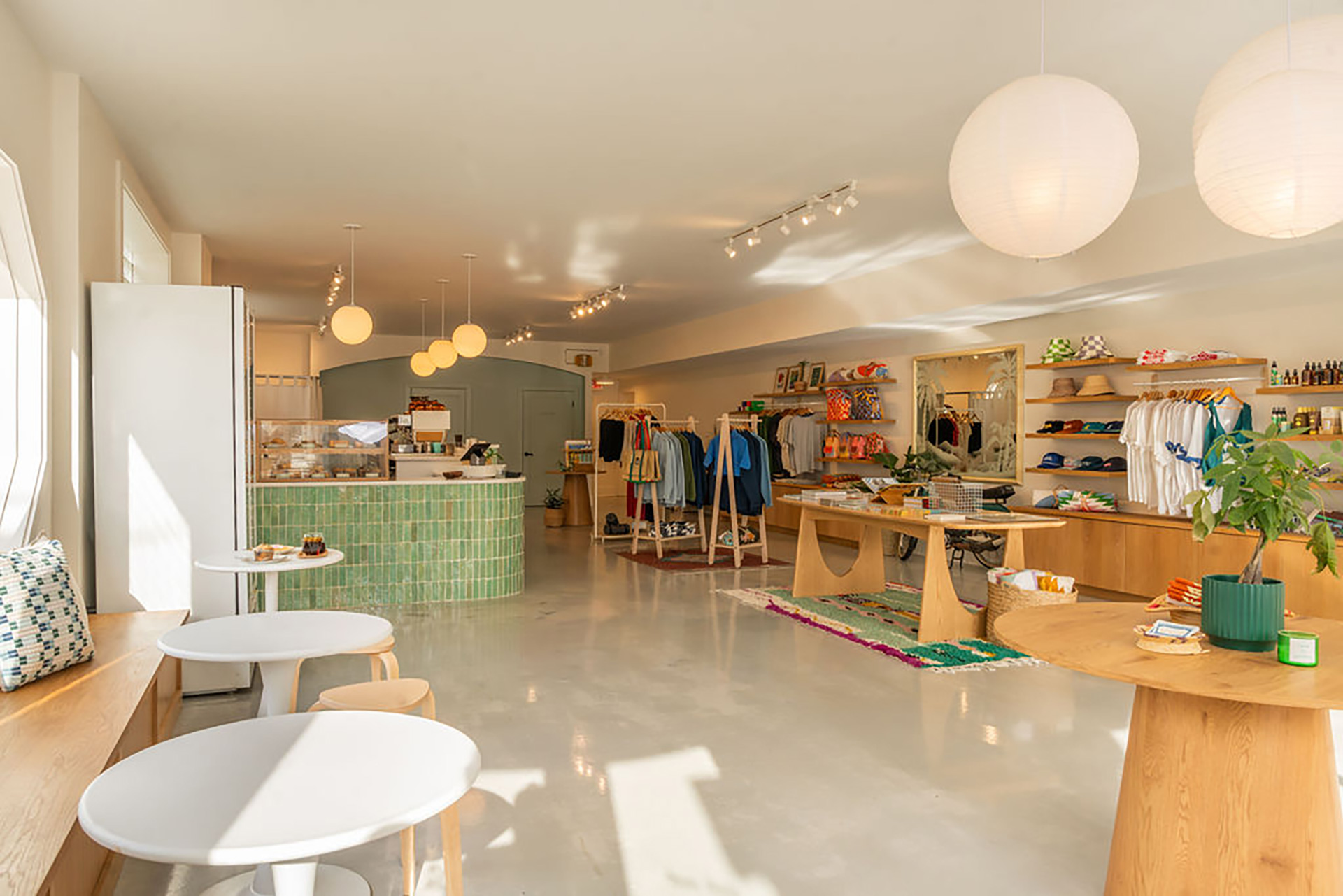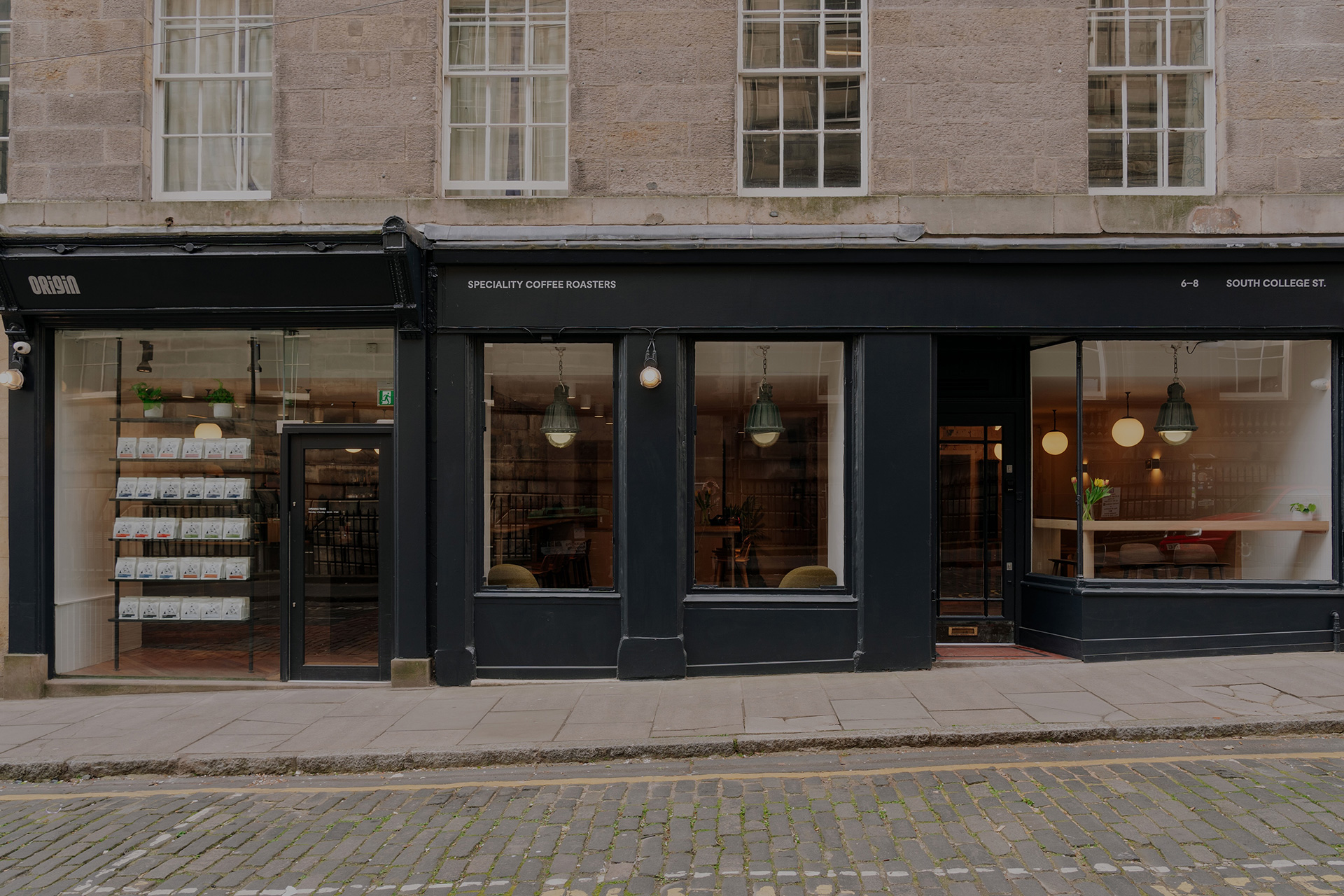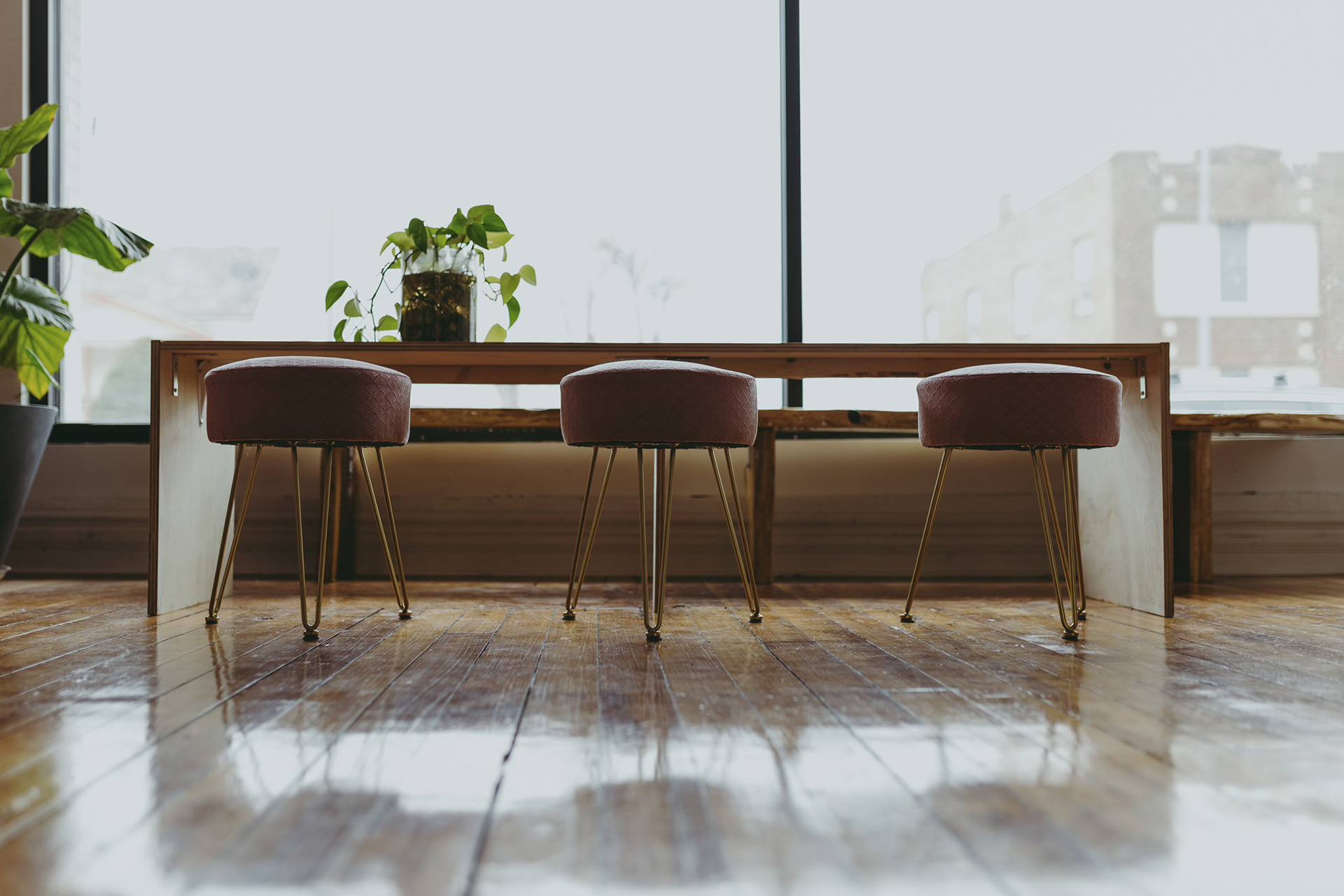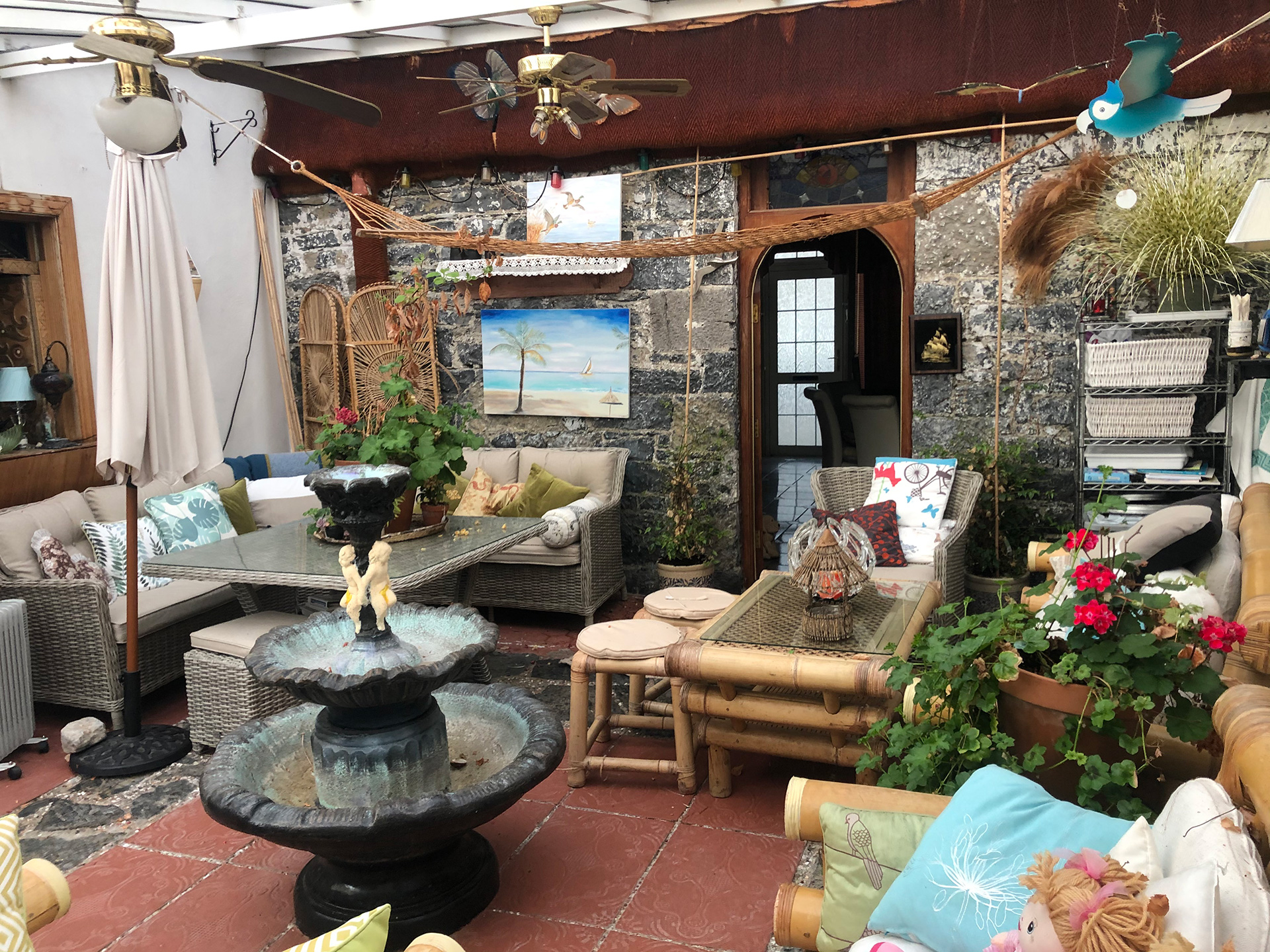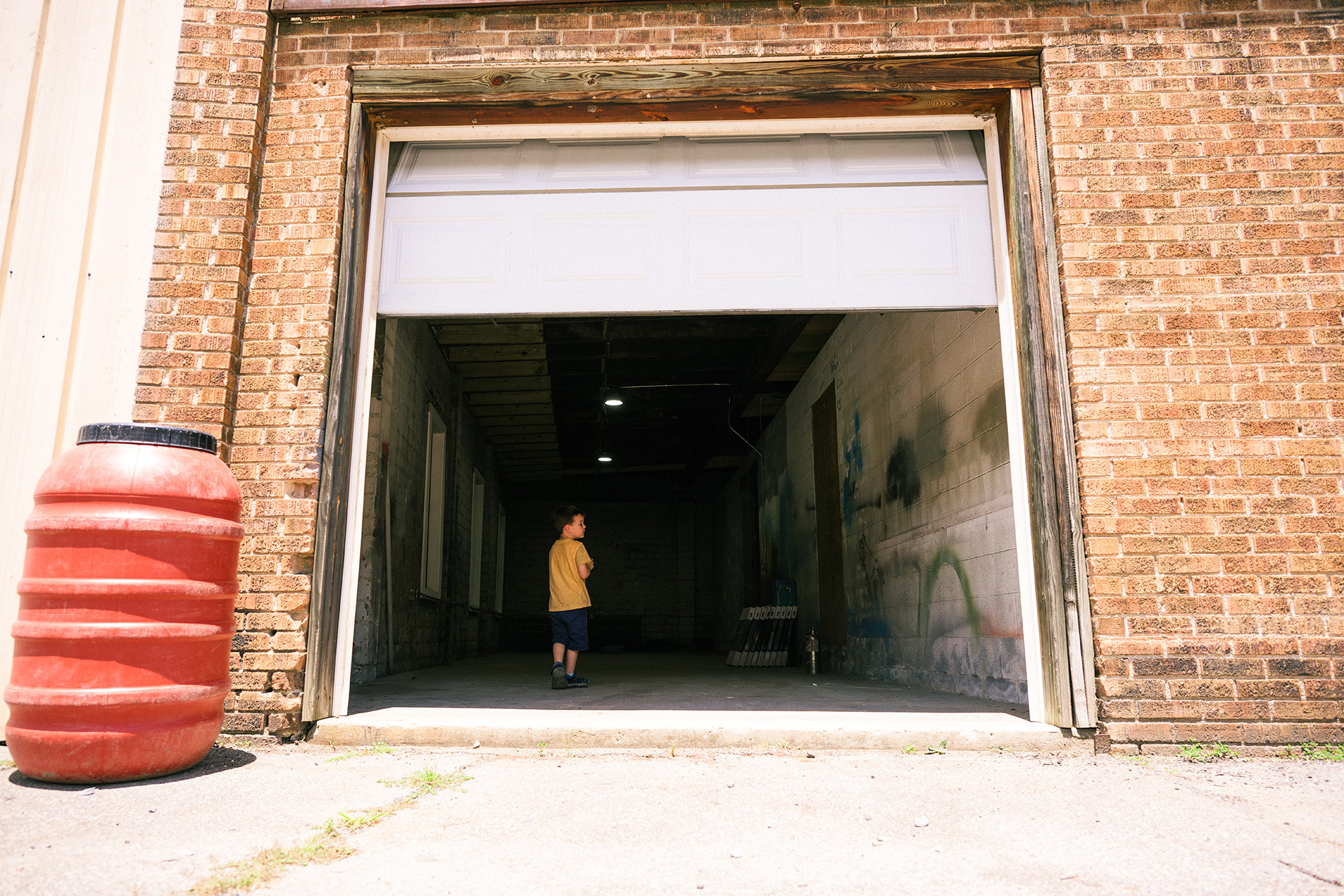Coffee has the power to transform lives. In Clarkston, Georgia—a city with a global refugee population—the folks behind Refuge Coffee Co. are taking job training and quality coffee and putting them together, making their community stronger in the process.
Serving coffee from Georgia’s own Safehouse Coffee Company out of a 1985 Chevy P30 step van, Refuge’s staff that includes newly-trained baristas from Ethiopia and the DRC. This van is stocked with professional coffee equipment, and has maybe one of the best coffee service ethos we’ve heard of here at Build-Outs: “to serve a very tasty drink and a heavy dash of friendliness.”
In a summer of hot Build-Outs, this is a staff favorite.
As told to Sprudge by Caleb Goodrum.
For those who aren’t familiar, will you tell us about your company?
Yeah! Refuge Coffee Co. is new nonprofit business based in Clarkston, GA (about 10 miles east of downtown ATL). We’re using the platform of specialty coffee to do job training for international refugees in our community. For the past 25 years, Clarkston has been an official refugee relocation city and as a result, it’s one of the most diverse places in the country. There are over 60 languages spoken in our one-square-mile city!
Many people arrive here without job skills for US market and end up in dead-end employment, making a living but not really able to make a life for themselves and their families. We’re trying to be a part of breaking that cycle. We’re hiring refugees to work as baristas on the truck, make a decent wage, but also take part in a holistic classroom-based job training program that helps identify their individual goals and work towards them. Endgame is plugging our trainees into growth-oriented jobs in their chosen industry. Our first two trainees are from Democratic Republic of the Congo and Ethiopia, so we’ve got some coffee-producing countries represented on board!
The revenue from operating the truck will eventually support the company, eliminating our reliance on donations to conduct the job training program. Demand for quality coffee in Atlanta is growing rapidly and has created an environment in which a self-sustaining coffee nonprofit is a possibility. We’re using great coffee from Safehouse Coffee Roasters and our startup efforts have been buoyed by the support of local friends at Counter Culture, Taproom Coffee, Octane Coffee, and Henry & June!
Can you tell us a bit about the new space?
Building out the coffee bar, we were working within set boundaries, namely the interior of a 1985 Chevy P30 step van. The goal for the truck was to retain as many positive elements of a great café as possible but make it totally unconstrained by power, water, and weather requirements—able to set up anywhere. In designing the space we wanted to 1.) make no compromises on coffee quality, 2.) have the output capability of a full-sized café, and 3.) open up the space as much as possible to let people see the process and actually converse with our baristas (a personal pet peeve is the way food trucks tend to be very high off the ground with tiny serving windows).
The existential problem of mobile coffee is power—most good coffee equipment needs a lot of it. We shelled out for a massive and excellent generator and have not regretted it. Once we knew we had the electricity we needed, we focused on workflow and customer experience. The serving side is basically one long bar (both inside and out) with two large windows allowing good two-way interaction. There is refrigeration at the front and rear of the truck, which is a luxury in the mobile food business. The interior is cozy but not cramped and 3 people can work efficiently inside without getting in each other’s way.
What’s your approach to coffee?
Buy the good stuff and don’t underextract it. We’re all-in on the modern barista tool suite—scales, refractometers, VST baskets, big flat burrs, big flat tampers—it’s indispensible in the quest to make consistently good coffee. But we’re trying to keep that stuff inside the truck so what makes it through the window to the customer is a very tasty drink and a heavy dash of friendliness to go with it.
Any machines, coffees, special equipment lined up?
The heart of our entire operation is a beautiful 20kW Power Tech diesel generator. With enough power to comfortably power a block of suburban homes (or lift an X-Wing from the Dagobah swamp), it’s 1000lbs of possibility.
For espresso, we’ve got a workhorse 2-group Linea EE espresso machine with “Piero” group caps (perhaps the ideal machine for a scrappy, analog life on a coffee truck) and a Mahlkönig K30 Air grinder. For batch filter coffee, we’re using a Fetco 2151-XTS. We’re also using the vastly underappreciated Mahlkonig Tanzania, not only for filter coffee, but for decaf espresso—which is well within its capability and saves precious counter space. I kind of wish I saw more Tanzanias on bars, and fewer EK43s…but that’s just me. Two separate cartridges of BWT Bestmax water filtration are keeping the water quality amazing and the machines happy. We’ve also got an obligatory smattering of manual brewing paraphernalia. Our Atago PAL-Coffee refractometer has been true friend, or PAL you might say.
What’s your hopeful target opening date/month?
We are now open and rolling around the Atlanta area! We are the only coffee truck in town, so in some ways we are creating our own market. This is both daunting and really fun. So far we’re doing a mix of regularly-scheduled locations, food truck events, festivals, weddings, and film set catering.
Are you working with craftspeople, architects, and/or creatives that you’d like to mention?
The inimitable Terry Ziniewicz consulted on our truck design and really took us to the next level. The man has done it all and it shows, and we’re thankful.
M&R Specialty Trailers built out the interior of the truck and were unbelievable to work with. The plumbing alone was “like fitting 10lbs of potatoes in a 5lb bag” and they executed flawlessly. If you’re building a food truck, they’re your guys.
Laura Balfour designed our brand identity and our awesome truck wrap.
How do we find y’all? Are there regularly scheduled events?
One of the enjoyable things about the truck is that our address changes every day, but we have regular hours every Wednesday in Clarkston at 4170 E Ponce de Leon Ave. If folks really want to see what we’re about, I usually tell them to come by on a Wednesday when we set out tables, chairs, umbrellas (and high-speed fans…this is Georgia in the summer after all) and act as a neighborhood café in a place that has never really had one before. We’ve served people from 26 countries in our short 6 weeks and seeing the truck turn into that kind of multicultural gathering spot is definitely a dream come true. Fun fact: among our international customers, Ethiopians are easily the best-represented group. Ethiopian coffee culture is no joke!
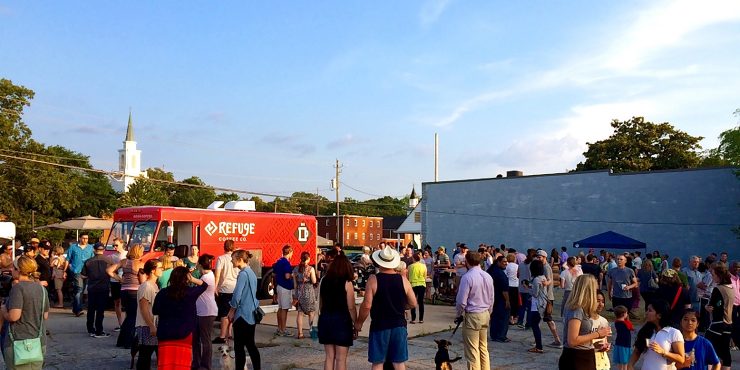
Editor’s note: Terry Ziniewicz, mentioned above as a consultant on this project, has been a longtime friend and advertising partner of Sprudge and is related to one of its founders by marriage.
Live the thrill of the build in our Build-Outs Of Summer archives.








